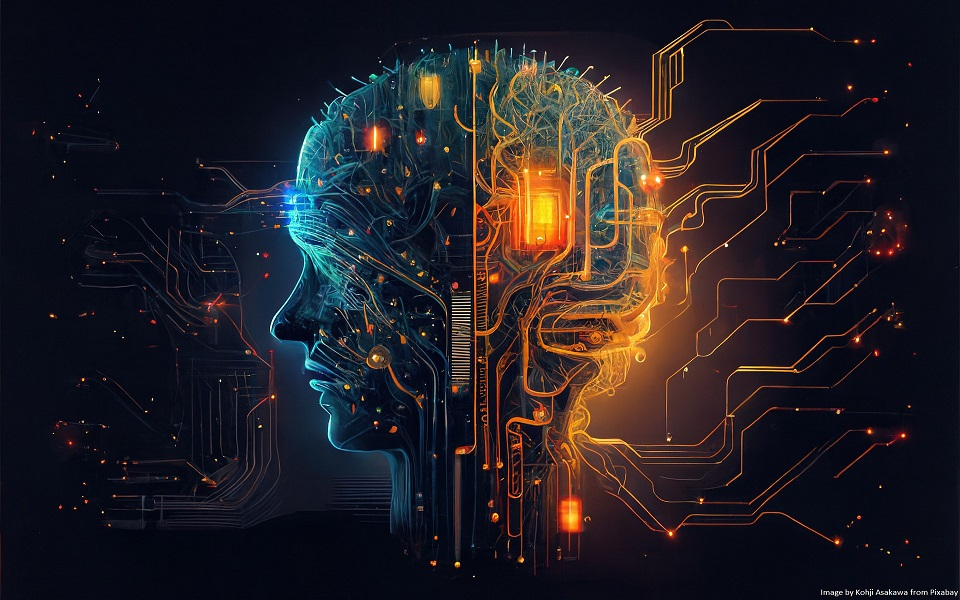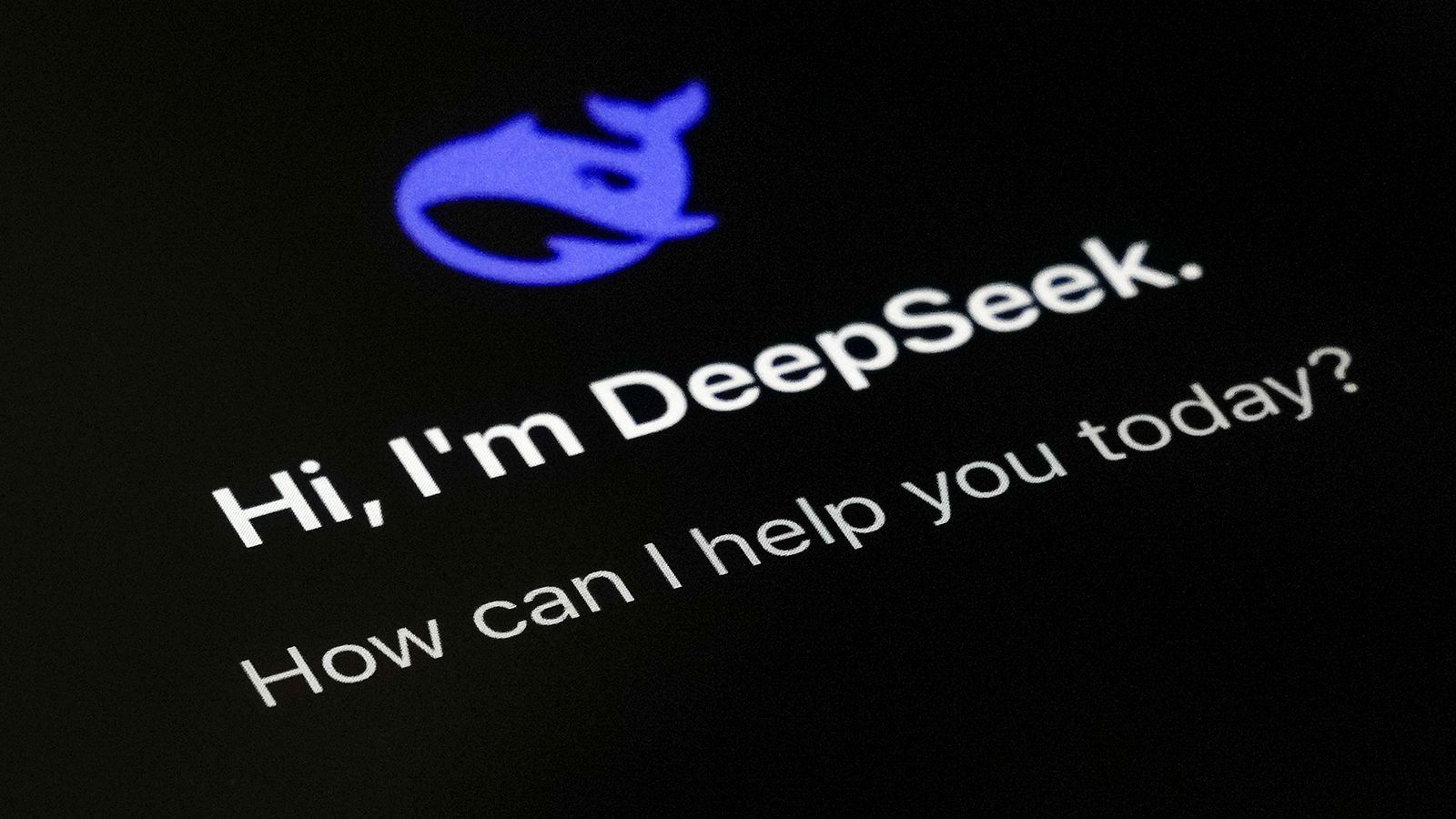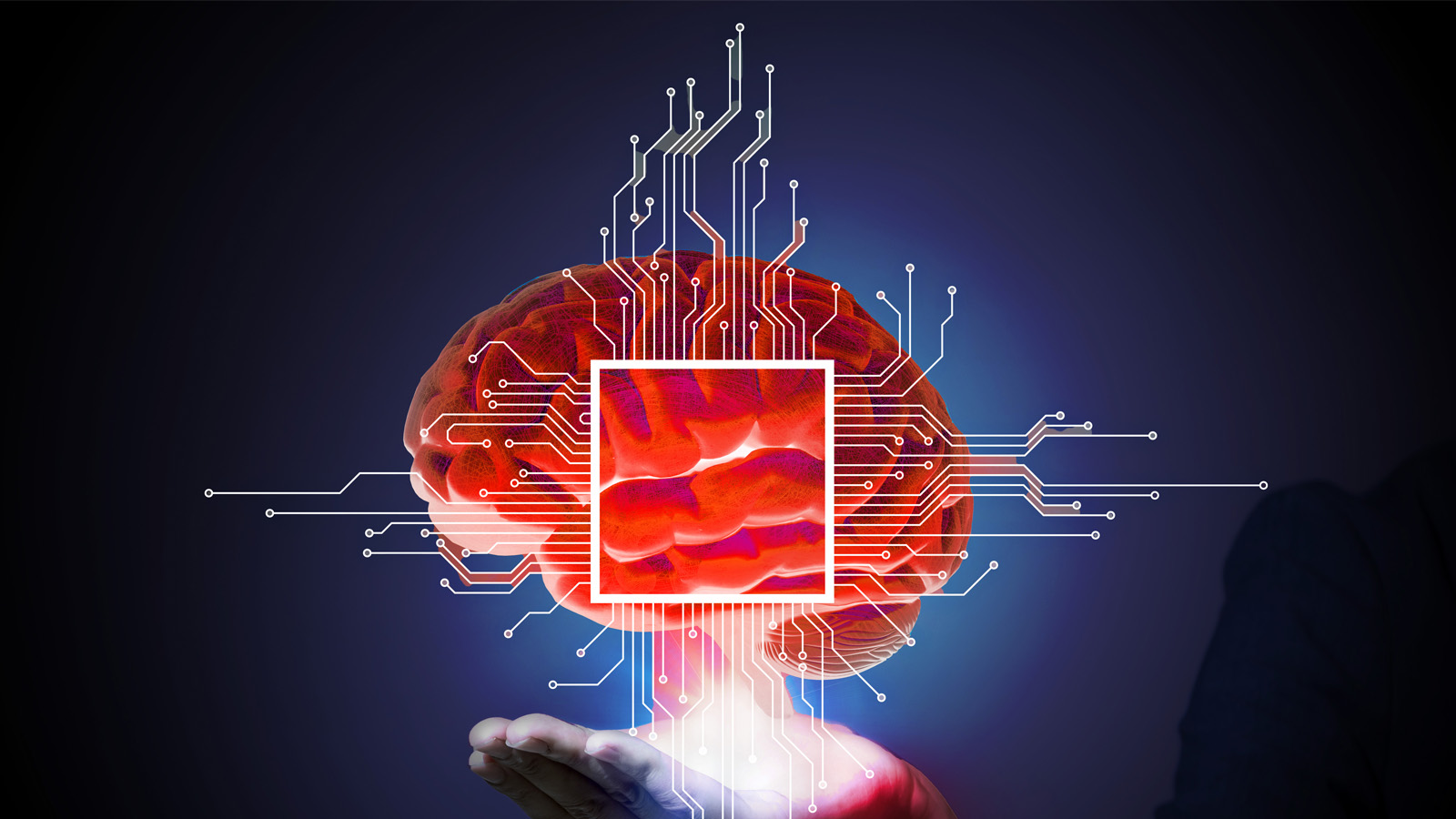We might earn money when you click on links to our partners. Discover more.
What is artificial general intelligence (AGI), and why does it matter? As one of the most talked-about topics in technology today, it has actually triggered a race amongst top business like OpenAI and Google to turn this advanced idea into truth. Understanding AGI is essential due to the fact that it has the potential to revamp markets, impact our society in profound ways, and alter the method we communicate with technology. Here's what you require to understand about what it might be able to do, how it may transform industries and fields, and the substantial challenges facing its development.
KEY TAKEAWAYS
• AGI differs from standard AI in key methods that it would have the ability to believe, discover by itself, and adapt to new difficulties like humans unlike traditional AI, which is developed for specialized tasks and runs within a limited scope. It requires humans to update and improve capabilities. (Jump to Section).
• Once it comes true, AGI would be able to make impressive advances in a number of fields, consisting of healthcare, research, and financing sectors. (Jump to Section).
• Creating AGI is hard due to the research challenges that include technical, ethical, and societal concerns. Addressing these difficulties is central to preserving the safe and positive advancement of this technology. (Jump to Section)
Featured Partners: Expert System Software
Find out more
TABULATION

What is Artificial General Intelligence (AGI): A Clear Definition.
Understanding AGI vs Traditional AI.
Potential Applications of Artificial General Intelligence.
Challenges in Artificial General Intelligence Research.
3 Introductory AGI Courses to Consider.
Frequently Asked Questions (FAQs).
Bottom Line: Why Knowing What Is Artificial General Intelligence Matters.
What is Artificial General Intelligence (AGI): A Clear Definition
Artificial basic intelligence, or AGI, describes a type of synthetic intelligence (AI) that can analyze, discover, and perform any cognitive task that a human can do. Unlike today's AI, which is built to handle specific tasks like advising items or processing data, AGI would be able to adjust to new challenges and use understanding throughout different fields. To put it simply, this innovative kind of AI would believe and reason like a human. While AGI holds great prospective, it deserves keeping in mind that it is still a principle today, without any completely established systems offered yet.
Key Capabilities of Artificial General Intelligence
AGI would have a variety of abilities that mimic human intellectual functions, so it can carry out tasks beyond the narrow focus of the present AI tools in the market. Some key abilities consist of the following:
Human-Like Reasoning: The innovation would have the ability to comprehend and make decisions the way humans do. It would believe critically, fix problems, and create options based upon its own experiences and past interactions, comparable to how we use past understanding to new scenarios.
Solving Unfamiliar Problems: One of AGI's strengths is its potential to deal with new problems. Unlike traditional AI, which is trained to perform particular tasks, AGI would have the capacity to deal with problems it hasn't been straight trained to resolve. It could find out how to approach an entirely brand-new obstacle, just like people do when faced with something we have actually never ever encountered before.
Self-Learning and Adapting: AGI could fine-tune its abilities and discover from experience, without the need to be manually upgraded every time. It would observe and analyze information, learn from mistakes, and discover better methods to complete tasks over time. This implies AGI might adjust to brand-new situations and improve at jobs by itself.
Using Knowledge Across Different Areas: AGI would have the ability to take what it learns in one location and apply it to other tasks. For example, if it discovered how to solve mathematics problems, it could utilize that understanding to address challenges in other fields, like science or business. The ability to move abilities across various areas is something humans do naturally and would make the innovation flexible in varied sectors.
Understanding and Reacting To Emotions: Recognizing and reacting to human feelings would likewise be within AGI's abilities. This would be necessary in settings where understanding individuals's feelings matters, such as healthcare, customer care, or social situations. By reacting to emotions properly, AGI would be much better geared up to work with human beings in a reliable method.
Understanding AGI vs Traditional AI
The table listed below supplies a photo of the major differences in between AI and traditional or narrow AI by highlighting their capabilities, versatility, and current status.
AGI would have the ability to believe, find out autonomously, and adjust to new obstacles like people. However, it is still theoretical and has not been realized yet. On the other hand, standard AI is built for particular tasks and runs within a repaired scope. It can not get used to brand-new jobs without human input.
For instance, an AGI could discover to detect medical conditions, then utilize that knowledge to develop customized treatment plans-and even change its approach based upon the client's progress. Additionally, it might use this problem-solving capability to jobs in entirely various fields, such as developing service methods or recommending on ecological conservation. In contrast, conventional AI, like a diagnostic tool, can only examine medical information for particular conditions. It can not adapt to other areas or improve on its own.
Potential Applications of Artificial General Intelligence
While AGI isn't here yet, its potential applications cover many fields and hold fantastic promise of drastic improvements in many sectors. Without being restricted to particular tasks like narrow AI, AGI would be extremely versatile and could use its abilities to solve multi-disciplinary issues. It might overcome difficulties currently beyond the capabilities of existing AI applications.

Transforming Healthcare
AGI would change the video game in health care by identifying complex and unusual diseases with greater precision, even in cases where signs are uncertain or overlap with numerous conditions. It might produce highly customized treatment plans by studying patient history, genetic information, and real-time health data. In addition, AGI could speed up drug discovery, determining possible treatments in weeks rather than years by processing huge datasets and running predictive simulations.
Advancing Scientific Research
In scientific research study, AGI would have the ability to replicate experiments, examine intricate datasets, and create hypotheses. It might accelerate developments in quantum physics, genomics, and climate science. By incorporating knowledge from various domains, wiki.vst.hs-furtwangen.de the innovation could uncover connections and solutions that might otherwise go undetected by traditional AI.

Improving Industry
Organizations in the commercial field could use AGI to increase performance in real-time by managing whole supply chains. It would forecast and fix disturbances before they happen. In production, it could supervise self-governing factories, optimizing production procedures while preserving safety and quality standards. Its ability to adapt to changing circumstances would make it an invaluable tool in industrial environments.
Enhancing Business Strategy
AGI could improve business decision-making by evaluating market patterns, consumer behavior, and functional data to discover chances and threats. In contrast to narrow AI systems, AGI would innovate solutions to tough business issues, such as handling financial uncertainty or forecasting long-term market shifts. Its ability to gain from diverse sources would empower services to remain competitive.
Redefining Finance
In the monetary sector, AGI might increase forecasting precision by identifying patterns in large amounts of financial data, so financiers and institutions can make informed choices. It would also have the ability to find scams in real-time by acknowledging subtle anomalies that traditional AI systems might miss out on. Additionally, AGI could develop more robust financial designs, factoring in complicated variables and circumstances to reduce risks.
Challenges in Artificial General Intelligence Research
Developing AGI is among the most enthusiastic goals in technology, but it comes with many problems. These challenges include technical, ethical, and societal areas, making AGI advancement a complex and multi-faceted procedure. Overcoming the following obstacles amounts making sure security, supporting ethical standards, and carefully preparing how AGI's introduction and usage will affect individuals, industries, and society as a whole:
Making AGI Truly Flexible: AGI would require to handle a large range of problems and adapt to brand-new scenarios, much like people. Building a system of versatility is exceptionally hard since existing AI tools are not created to think or find out at this level of elegance.
Massive Computing Needs: To replicate human intelligence, AGI would need huge quantities of computing power to process info from varied sources rapidly. Figuring out how to make such systems effective and efficient enough for real-world use is a significant obstacle.
Understanding Human Intelligence: We don't completely comprehend how human believing works, especially complex elements like instinct or consciousness. Without this understanding, it's challenging to develop devices that can emulate human-like thinking.
Making AGI Safe and Ethical: library.kemu.ac.ke AGI might possibly be misused, like to create prejudiced systems or damaging tools like self-governing weapons. Researchers should make sure that AG is developed properly and follows strict ethical guidelines. This is a challenging job that demands international collaboration.
Keeping It Under Control: There's a threat AGI could act in ways we do not anticipate, especially considering that it would have the capability to find out and alter over time. Ensuring that these systems stay aligned with human worths and are safe to utilize is one of the most significant challenges in AGI research study.
Influence on Jobs and Society: If AGI becomes a truth, it might replace jobs or trigger economic inequality by benefitting some groups more than others. Getting ready for these social effects is just as important as building the technology itself.
High Costs and Resources: Researching AGI necessitates a lot of money, time, and expert understanding. Not all companies have these resources, decreasing progress and leaving smaller organizations out of the race.
3 Introductory AGI Courses to Consider
Familiarizing yourself with AGI can offer you an one-upmanship, whether you want to advance your profession in AI or just wish to remain informed about emerging innovations. The following introductory courses can assist you gain a deeper understanding of what synthetic general intelligence is, so you can strengthen your understanding about this promising AI development.
Artificial General Intelligence (AGI): An Introductory Course on Udemy
This Udemy course provides a fundamental understanding of AGI, appropriate for newbies with no previous experience. The course covers appropriate subjects, including the foundations of AI, the basics of AGI, and the most current patterns in the field. It likewise checks out the benefits, risks, and difficulties related to AGI, equipping you with insights into what the innovative technology can achieve. The entire course includes 15 lectures and can be finished in approximately 45 minutes. Upon conclusion, you will receive a certificate to reinforce your credentials in the job market. This introductory course costs $24.99.
Intro to Artificial General Intelligence (AGI): Future of AI on Udemy
Udemy's initial course offers a thorough overview of AGI for students without any technical background. It talks about the historic context and foundation of AGI, the differences in between narrow AI and AGI, and ethical considerations surrounding its development. In addition, it deals with future trends in AI and AGI, shedding light on the difficulties and opportunities that lie ahead. Spanning one hour and 46 minutes, the course consists of 39 lectures, on-demand video, and downloadable resources. It likewise has a dry run at the end to reinforce your understanding. You will be granted a certificate when you finish the course. It is readily available as part of Udemy's premium plans, beginning at $20 monthly, or as a different purchase of $49.99.

Artificial General Intelligence (AGI) on Udemy

This Udemy course brings a clear and succinct introduction to the subject, with on-demand videos and 22 lectures. It elaborates on major AGI principles and the role of robotics in AGI development. It also examines the ethical, annunciogratis.net software, and hardware difficulties in producing AGI. The course provides tests to check your understanding and a certificate of completion. Priced at $44.99, it is made for learners at any level, making it available and important for anybody who wishes to discover more about AGI.
Frequently Asked Questions (FAQs)

Achieving AGI could revolutionize industries, boost decision-making, and cause considerable improvements in technology. However, it also raises concerns about ethics, task displacement, and the need for proper policy to make sure it is established safely and properly.
Experts disagree on how far we are from attaining AGI. Sam Altlman of OpenAI thinks in 2025, AI representatives may join the labor force, ultimately paving the way to AGI development. On the other hand, a study of AI scientists puts the average estimate around 2047. Despite fast AI advancements, existing systems are still limited to narrow tasks and do not have the broad, flexible thinking of humans-so AGI is most likely still decades away.

The concept of AGI totally changing people is still disputed. Even though it's most likely that AGI will assist us by taking control of repetitive tasks, there is a possibility that it might displace particular tasks. That said, rather than completely changing human beings, AGI is anticipated to work together with us, managing technical obligations while we focus on jobs that require imagination and empathy. At the end of the day, the impacts of AGI will depend on how society selects to manage and incorporate it.
Bottom Line: Why Knowing What Is Artificial General Intelligence Matters
Understanding synthetic basic intelligence is imperative since this technology could alter industries, resolve difficult problems, and change how we use AI. But as we start to establish AGI, we must carefully address several challenges, consisting of technical issues, ethical issues, and its general influence on society. By learning about AGI's possible and risks, we can pursue making certain it is created properly and used in manner ins which would benefit everyone.








